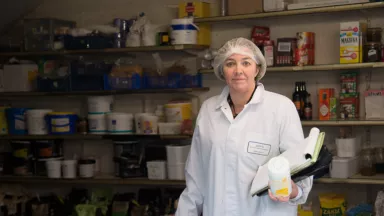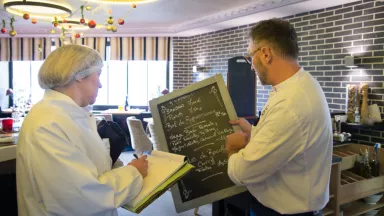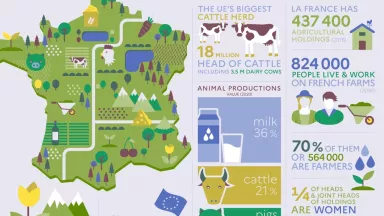All about the Summer School
Partager la page
Veterinary authorities of countries trading with European Union Member States should be aware of European regulation. The Agreement on the Application of Sanitary and Phytosanitary Measures of the World Trade Or-ganization encourages WTO members to base their regulations on the standards developed by three international bodies, notably the Codex Alimentarius Commission, the World Organisation for Animal Health (OIE) and the International Plant Protection Convection (IPPC).
General objectives
They set the main trends for harmonised practices within the fields of Animal Health (Animal Health Law) and Food Safety (Food Law).
National authorities responsible for food safety and animal health need to be able to implement Codex and OIE standards in order to trade. This includes capacity to use risk analysis, select appropriate meth-ods for animal disease surveillance, and control hazards in production.
Through a variety of educational methods (lectures, cases studies, field visits and study trips, the ENSV Veterinary Education Courses aims to:
- Promote global governance by stimulating exchange in veterinary practice and experience;
- Participate in veterinary institutional and technical capacities; further cooperation of partner countries to develop mutual understanding.
The audience
The audience consists of veterinary Officers (OIE focal points, Senior veterinary offi cers, Executives of veterinary institutions or agricultural organizations, etc.) and management staff from private sector : animal production, pharmaceutical industry and agro-industrial sector.
The challenge is to allow participants to gather and share their experience through the presentation and use of different concepts; to question their own personal practice regarding OIE* and Codex Alimentarius standards.
These courses are combined with the OIE Strategic Plan for capacity building activities, in terms of management, law and governance of Veterinary Services.
Trainees must have a degree of advanced studies in veterinary sciences or agronomy, and a minimum of 5 years of relevant professional working experience.
A self-assessment test and a package of preparatory documents will be available on an online platform before the course. Fluency in English is required.
The speakers are from representatives of research institutions, European Commission, FAO, OIE, WHO, WTO, central and local veterinary services, risk assessment agencies, veterinary schools, stakeholders of professional sectors…
And also
Voir aussi
DGAL: a government department at the service of the citizen
14 avril 2023Directions et services

Health monitoring of animal and plant products
20 mars 2018Alimentation

Infographics - Farming France
10 juin 2021Production & filières
